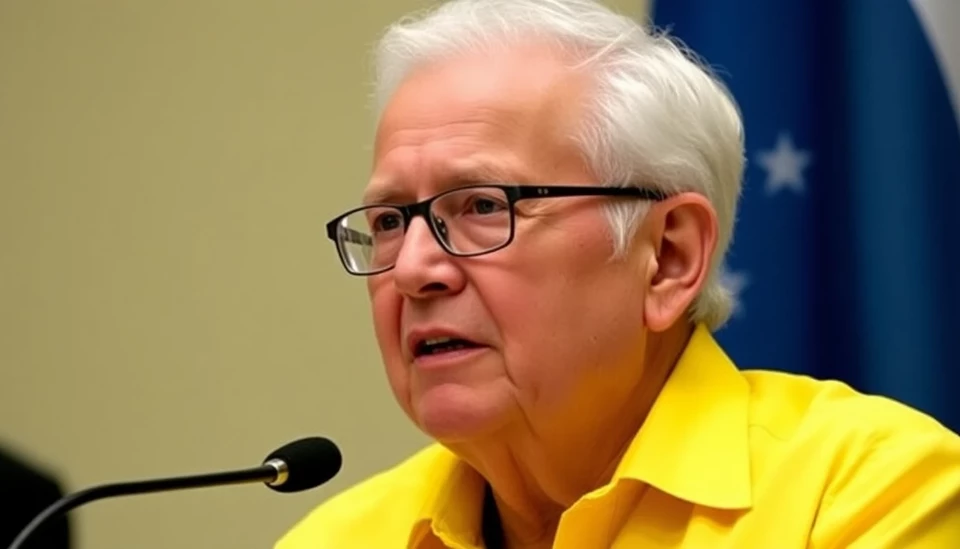
In a recent address, Brazil's Finance Minister, Fernando Haddad, shared critical insights into his primary mandate from President Luiz Inácio Lula da Silva: to repair and strengthen the country’s budget. This task has become increasingly urgent as Brazil grapples with a challenging economic landscape marked by slow growth and heightened inflationary pressures.
Haddad emphasized that President Lula has entrusted him with not just the responsibility, but a clear mission to rejuvenate Brazil’s fiscal health. This commitment to financial reform is part of Lula's broader strategy to stabilize the economy and reignite growth following a period of considerable uncertainty exacerbated by the pandemic.
Addressing the members of the Brazilian Congress, Haddad outlined the government’s fiscal strategies aimed at restoring investor confidence and promoting sustainable economic development. The finance chief underscored the importance of balancing budgetary constraints while simultaneously focusing on critical social spending. "We must ensure that our decisions now do not prevent us from achieving prosperity in the future," he noted.
The finance minister highlighted that among the proposed initiatives is a comprehensive reform to the country’s tax system. This reform is designed to create a more equitable distribution of tax burdens and enhance revenue collection without imposing additional strain on the already vulnerable population. The focus, he stated, will be on fostering growth by stimulating investment and creating jobs while managing the deficit effectively.
Haddad also pointed out the necessity of collaborating closely with economic institutions and stakeholders to devise a budget that reflects the needs of all Brazilian citizens. His approach signifies a departure from austerity measures that have historically stymied growth and fueled public discontent. Instead, he advocates for a balanced strategy that prioritizes investment in public services while ensuring fiscal responsibility.
In a polarized political climate, Haddad’s job is, undoubtedly, a daunting one. Yet, he remains optimistic about the potential for his reforms to produce tangible results. His unwavering commitment to transparency and accountability is evident in his discussions with both opposition members and coalition partners, aiming to bridge divides and garner support for the proposed reforms.
The public and investors alike will be keenly observing the developments resulting from Haddad’s ambitious plans. With Brazil’s economy being at a critical juncture, the success of these initiatives will be vital for improving national welfare and instilling confidence in Brazil's financial future.
As the nation looks ahead, the finance chief’s efforts to fortify the budget will not only serve as a barometer for Brazil’s economic resilience but also resonate beyond its borders, considering the global economic landscape remains precarious.
In closing, the road ahead for Brazil’s fiscal future may be fraught with challenges, but with a focused plan and steadfast dedication, the government hopes to steer the nation towards stability and growth.
#Brazil #Finance #Lula #BudgetReform #EconomicStability #FernandoHaddad
Author: Daniel Foster




